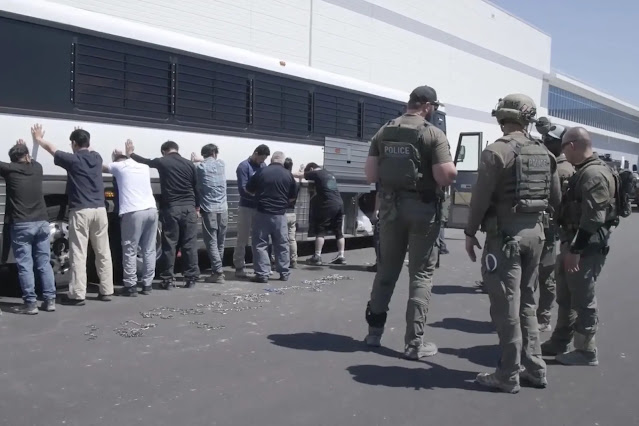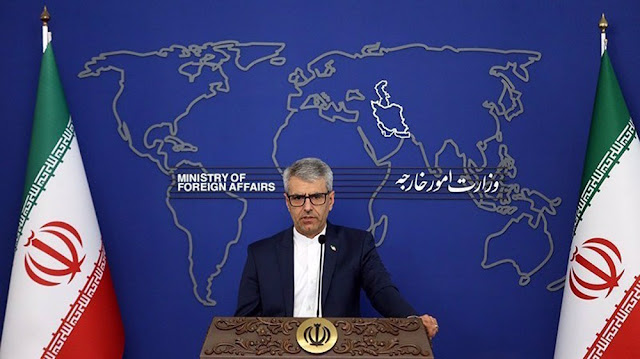In a swift response to a large-scale immigration enforcement operation conducted by U.S. authorities, the South Korean government is mobilizing resources to repatriate hundreds of its citizens who were detained during the raid. The country’s flag carrier, Korean Air, has been tasked with operating a chartered plane, potentially departing as early as Wednesday, September 10, 2025, to bring the affected nationals back home. This development has sparked significant attention both domestically and internationally, raising questions about immigration policies, bilateral relations, and the treatment of foreign nationals in the United States.
The U.S. Immigration Raid: Context and Scope
The U.S. immigration raid, which took place in the days leading up to September 9, 2025, targeted multiple locations across the country, though specific details regarding the sites and the nature of the operation remain limited. According to preliminary reports, the raid was part of a broader effort by U.S. Immigration and Customs Enforcement (ICE) to address undocumented immigration and enforce compliance with federal immigration laws. The operation reportedly focused on workplaces and residential areas suspected of harboring individuals without legal status, though the exact criteria for targeting remain unclear.
Among those detained were an estimated several hundred South Korean nationals, whose presence in the U.S. ranged from temporary workers to long-term residents. The scale of the detentions has prompted an urgent response from the South Korean government, which is now coordinating with its embassy in Washington, D.C., and consulates across the U.S. to assess the situation and provide assistance to its citizens.
The raid has drawn comparisons to previous high-profile immigration enforcement actions in the U.S., such as the 2019 raids on food processing plants in Mississippi, which resulted in the detention of nearly 700 individuals. However, the inclusion of a significant number of South Korean nationals in this latest operation has added a unique diplomatic dimension, given the strong economic and political ties between the U.S. and South Korea.
South Korea’s Response: A Diplomatic and Logistical Effort
Upon receiving news of the detentions, South Korea’s Ministry of Foreign Affairs acted quickly to address the crisis. In a statement released on September 9, 2025, the ministry confirmed that it was working closely with U.S. authorities to verify the identities and statuses of the detained individuals. The ministry emphasized its commitment to ensuring the safety and well-being of its citizens, pledging to provide legal and consular support to those affected.
To facilitate the repatriation process, the South Korean government has enlisted Korean Air, the nation’s largest airline, to operate a chartered flight. The plane is expected to depart from a major U.S. city—potentially Los Angeles or New York, given their large Korean communities—as early as Wednesday, September 10. The flight will transport the detained nationals back to Incheon International Airport, South Korea’s primary gateway.
The decision to use a chartered flight underscores the urgency of the situation and the government’s determination to bring its citizens home promptly. Sources within the Ministry of Foreign Affairs indicate that the operation involves complex logistics, including coordination with U.S. immigration authorities to secure the release of the detainees, arranging temporary accommodations for those awaiting repatriation, and ensuring compliance with international travel protocols, particularly in light of ongoing health and safety regulations.
The Affected Nationals: Who Are They?
While detailed information about the detained individuals remains limited, preliminary reports suggest that they represent a diverse cross-section of South Korean society. Many are believed to be workers employed in industries such as construction, hospitality, and small businesses, which often rely on immigrant labor. Others may include students, temporary visitors, or individuals who have overstayed their visas, a common issue in immigration enforcement cases.
South Korea has a long history of emigration to the United States, with vibrant Korean-American communities in cities like Los Angeles, New York, and Atlanta. According to the U.S. Census Bureau, approximately 1.9 million people of Korean descent live in the United States, making them one of the largest Asian-American groups. While the majority are U.S. citizens or legal residents, a smaller subset may lack proper documentation, making them vulnerable to immigration enforcement actions.
The detention of South Korean nationals has sparked concern among advocacy groups, who argue that many of the affected individuals have deep ties to the U.S., including families, businesses, and community connections. Some may have lived in the country for years, contributing to the economy and society while navigating the complexities of the U.S. immigration system. The sudden disruption caused by the raid has raised questions about the fairness and proportionality of such enforcement actions, particularly when they affect individuals from allied nations like South Korea.
Diplomatic Implications: U.S.-South Korea Relations
The detention of South Korean nationals in a U.S. immigration raid has the potential to strain bilateral relations between the two countries, which have historically been strong allies. The U.S. and South Korea share deep economic, military, and cultural ties, with the U.S. maintaining a significant military presence in South Korea to counter threats from North Korea. The two nations are also key trading partners, with a free trade agreement (KORUS FTA) that has boosted economic cooperation since its implementation in 2012.
However, immigration issues have occasionally caused friction. South Korea, like other countries, has expressed concerns in the past about the treatment of its citizens in U.S. immigration proceedings. The current situation is likely to prompt discussions at the diplomatic level, as South Korea seeks assurances that its nationals are being treated fairly and humanely. The South Korean embassy in Washington has reportedly engaged in high-level talks with the U.S. Department of State to address the issue and expedite the release of those detained.
Public sentiment in South Korea is also a factor to consider. News of the raid and the subsequent detentions has already sparked debate on social media platforms like KakaoTalk and Naver, with many South Koreans expressing outrage over what they perceive as heavy-handed tactics by U.S. authorities. Some have called for the South Korean government to take a stronger stance, potentially by issuing a formal protest or seeking compensation for affected individuals. Others, however, argue that the government should focus on supporting the repatriation process and addressing the root causes of undocumented immigration.
Logistical Challenges of Repatriation
Organizing a large-scale repatriation effort is no small feat, particularly given the time-sensitive nature of the operation. The South Korean government faces several logistical challenges, including:
Identification and Verification: Confirming the identities and immigration statuses of the detained individuals is a critical first step. This process involves coordination between South Korean consular officials and U.S. immigration authorities, who must provide accurate information about each detainee.
Legal Support: Some detainees may wish to challenge their deportation or seek legal recourse, which could complicate the repatriation process. The South Korean government has pledged to provide access to legal counsel, but the availability of qualified attorneys and the complexity of U.S. immigration law may pose obstacles.
Health and Safety Protocols: In the wake of global health concerns, including ongoing monitoring for infectious diseases, the repatriation flight must adhere to strict safety protocols. This includes health screenings for passengers, compliance with mask mandates, and coordination with health authorities in both the U.S. and South Korea.
Emotional and Social Support: For many of the detained individuals, returning to South Korea may represent a significant disruption to their lives. Some may have left behind families, jobs, or businesses in the U.S., and the prospect of starting over in South Korea could be daunting. The government has indicated that it will provide counseling and reintegration support to help returnees adjust.
Korean Air, which has extensive experience in international operations, is well-equipped to handle the logistical demands of the repatriation flight. The airline has previously operated special flights during crises, such as the evacuation of South Korean nationals from conflict zones or during the COVID-19 pandemic. The chartered plane is expected to be a wide-body aircraft, such as a Boeing 777 or Airbus A380, capable of carrying several hundred passengers.
Broader Implications for Immigration Policy
The detention of South Korean nationals in a U.S. immigration raid highlights broader issues surrounding immigration policy and enforcement. In recent years, the U.S. has faced criticism for its approach to immigration, with debates centering on the balance between border security and humanitarian considerations. The Biden administration, which has sought to reform certain aspects of the immigration system, has emphasized targeted enforcement actions that prioritize public safety and national security. However, large-scale raids like the one reported this week often draw scrutiny for their impact on communities and their potential to disrupt lives.
For South Korea, the incident raises questions about the experiences of its citizens abroad and the protections afforded to them. The country has a relatively low rate of undocumented emigration compared to some other nations, but the detention of hundreds of its nationals underscores the vulnerabilities faced by those who navigate complex immigration systems. The South Korean government may use this incident as an opportunity to strengthen its consular services and advocate for fair treatment of its citizens in foreign countries.
Community Reactions and Advocacy Efforts
In the U.S., Korean-American advocacy groups have been quick to respond to the raid, calling for transparency and accountability from ICE and other federal agencies. Organizations such as the Korean American Coalition and the National Korean American Service & Education Consortium (NAKASEC) have issued statements condemning the detentions and urging the U.S. government to provide due process to those affected. These groups are also mobilizing to offer legal assistance and support to families impacted by the raid.
In South Korea, civil society organizations and human rights groups have echoed these calls, emphasizing the need for compassion and fairness in immigration enforcement. Some activists have argued that the U.S. should consider the contributions of South Korean nationals to its economy and society before resorting to mass detentions and deportations.
Looking Ahead: What’s Next?
As South Korea prepares to repatriate its detained nationals, several key questions remain unanswered. Will the U.S. provide additional information about the raid and the criteria used to target individuals? How will the South Korean government support returnees as they reintegrate into society? And what impact will this incident have on U.S.-South Korea relations in the long term?
For now, the focus remains on ensuring the safe and orderly return of the detained individuals. The chartered flight, expected to depart imminently, represents a critical step in addressing the immediate needs of those affected. However, the broader implications of the raid—both for immigration policy and international relations—are likely to resonate for months to come.
As the plane prepares to take off, it carries not only passengers but also the weight of a complex and emotionally charged issue. For the South Korean nationals on board, the journey home marks the end of one chapter and the beginning of another, as they navigate the challenges of returning to a country they may not have seen in years. For the governments of South Korea and the United States, the incident serves as a reminder of the delicate balance between enforcing laws and maintaining the bonds of friendship that have defined their relationship for decades.






